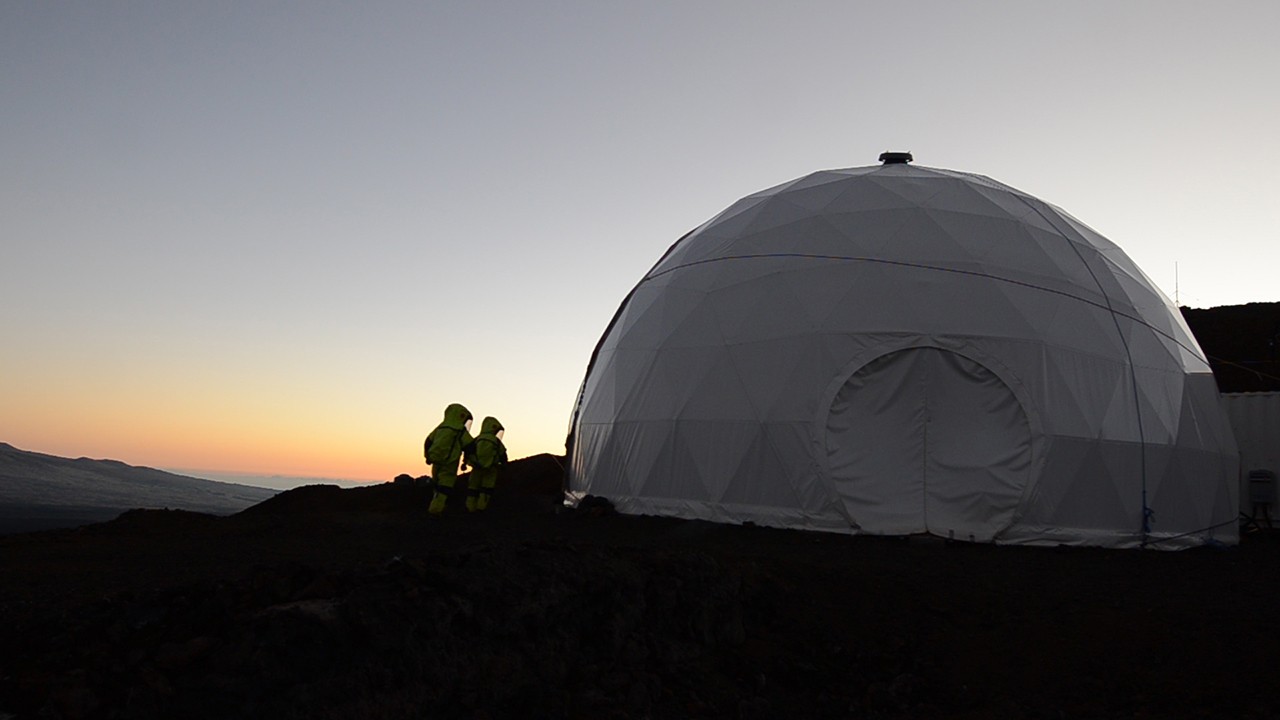Image: NASA
NASA’s InSight lander has detected a “marsquake,” marking the first time seismic activity has ever been recorded on Mars.The Martian quake, which occurred on April 6, was officially announced on Tuesday by the French space agency CNES, which built the seismometer that made the detection. Called the Seismic Experiment for Interior Structure (SEIS), the instrument was carefully placed on the surface of Mars in December by InSight’s robotic arm.“We've been waiting months for our first marsquake,” said Philippe Lognonne, the principal investigator for SEIS, in a statement. “It's so exciting to finally have proof that Mars is still seismically active. We're looking forward to sharing detailed results once we've studied it more and modelled our data.”Mars and the Moon are not tectonically active, and do not produce the kind of cataclysmic quakes that we sometimes experience on Earth. However, both worlds contain fault lines that can fracture under pressure, sending seismic waves through their interiors. Meteorite impacts can also cause tremors on these bodies. SEIS has been picking up minute vibrations caused by windy weather since it was first deployed on Mars, but the tremor on April 6 was different. The InSight team noted that SEIS’s profile of the event resembled the data from seismometers placed on the lunar surface by Apollo Program astronauts. This comparison with known Moonquakes, along with the strength of the signal, led the team to conclude that the event was a marsquake.The SEIS team isn’t sure yet what caused the event, but they continues to analyze the data while keeping an eye out for more marsquakes.“InSight’s first readings carry on the science that began with the Apollo missions," said Bruce Banerdt, principal investigator of InSight, in a statement. "We've been collecting background noise up until now, but this first event officially kicks off a new field: Martian seismology.”Get six of our favorite Motherboard stories every day by signing up for our newsletter .
SEIS has been picking up minute vibrations caused by windy weather since it was first deployed on Mars, but the tremor on April 6 was different. The InSight team noted that SEIS’s profile of the event resembled the data from seismometers placed on the lunar surface by Apollo Program astronauts. This comparison with known Moonquakes, along with the strength of the signal, led the team to conclude that the event was a marsquake.The SEIS team isn’t sure yet what caused the event, but they continues to analyze the data while keeping an eye out for more marsquakes.“InSight’s first readings carry on the science that began with the Apollo missions," said Bruce Banerdt, principal investigator of InSight, in a statement. "We've been collecting background noise up until now, but this first event officially kicks off a new field: Martian seismology.”Get six of our favorite Motherboard stories every day by signing up for our newsletter .
Advertisement

